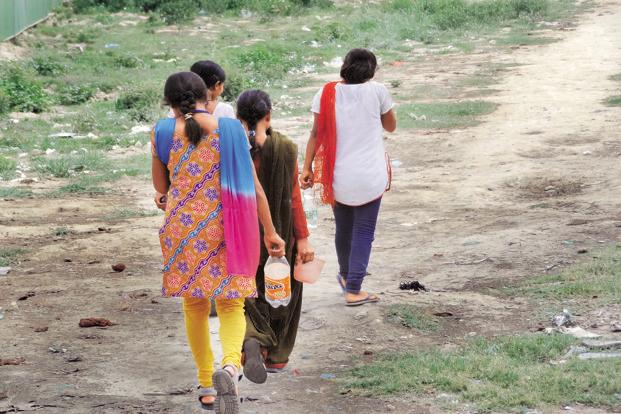Sanitation – The Way to a Healthy & Dignified Life

Naina Jha is a PR Professional and a travel hog, who loves to explore. She loves music, dance and sports. She has a keen interest in social work and has worked with an NGO for 5 years. She is actively working on the state of education in slums.
“Sanitation – A Way to Live Healthy & Dignified Life”
Sanitation is one of the important points in the Sustainable Development Goals enlisted by the United Nations. The reason being ‘cleaner the sanitation, healthier the life’. Though clean sanitation is a right of every human being it becomes even more important for women.
More than half of the 1.2 billion people in India live without toilets. They squat on roadsides and agricultural fields. According to Nirmal Bharat Abhiyan, 2013 54.7 percent of households in the country are without toilets. According to a UNICEF report, the national Indian average of sanitation, hygiene and water safety is mere 34 percent. For the urban population it is 58 percent whereas it is just 23 percent in rural areas.
According to Amnesty International, millions of women and girls have to walk more than 300 metres from their homes to use available toilets. The common use of “flying toilets” – human waste disposed of in plastic bags thrown into the open – is a result of the inaccessibility of toilet facilities.
According to a study, the world’s second most populous nation has 60.4 percent of its people without access to safe and private toilets. Even the existing public toilets in the country are poorly located and in such bad state that one must be extremely shy of public nudity to think of using one. The health of a civic society is strongly dependent on its sanitary conditions. Over 10 million urban households in the country do not have toilets.
Lack of adequate sanitation affects women in particular. Women have a greater need for privacy when using toilets and when bathing. Inaccessible toilets and bathrooms make them more vulnerable to various ailments, rape and other forms of Gender Based Violence. Women, not only face the risk of physical and sexual violence while relieving themselves in the open but also face the risk of animal attacks, snake bites and more.
Women have a much greater need for privacy and dignity when menstruating. Women suffering from menstrual cramps have to go through the difficulty of walking miles just for toilets. Also during menstruation, they are more likely to get infected. In addition, it is very difficult for them to change sanitary pads when no toilets are accessible. During pregnancy, especially in its later phase, it must be punishing for them to defecate in such distant and bushy areas.
Proper sanitation becomes even more important if we want to see girls coming to school. If schools don’t have separate toilets for girls, they’re most likely to drop out of school on attaining puberty.
Generally, women go to distant and deserted place to defecate. On their way to such deserted areas, they’re often molested, eve-teased or even raped which puts a danger on their dignity and life. Many of them face absurd comments by pedestrian walkers. And it is even more difficult and unsafe during nights. Open defecation causes many infections and ailments like cholera, giardiasis to name a few. Improper excreta disposal causes intestinal worm infections, trachoma mostly in kids and even women. Improper sanitation also includes inadequate water facilities often puts girls and women in embarrassing situations in public. Improper excreta and sanitary napkins disposal cause death to animals. They’re also likely to spread infections.
Sanitation is a matter of health and dignity for women. The existence of public and private toilets affect women’s ability to work, their mobility and their safety. It also leads to a high girl drop-out rate in schools. According to the 2011 Annual Status of Education Report by the HRD Ministry, lack of access to toilets causes girls aged 12-18 to miss approximately five days of school per month or around 50 school days per year. According to a national survey by AC Nielson and NGO Plan India, 2012, 23 percent girls drop out of school after reaching puberty. In Bihar, 872 cases of rape were reported till November, 2012. Mr. Arwind Pandey, Bihar Police, IG for weaker sections states that roughly 40-45 percent of the incidents took place with the women when they went out of their homes to defecate in the open.
So, for the dignity and safety of every woman, proper sanitation is important and a must. And most importantly it is their basic human right. Moreover, it is important to live in clean and healthy surroundings.


